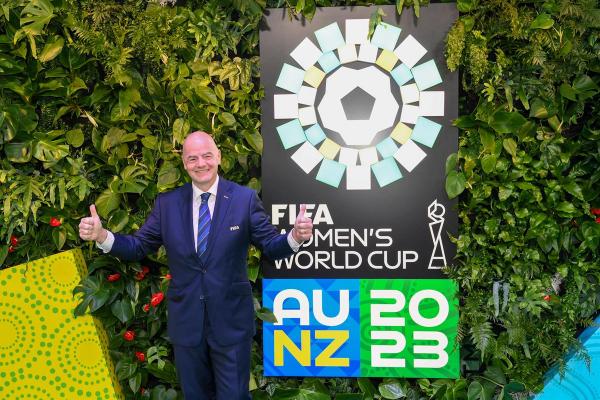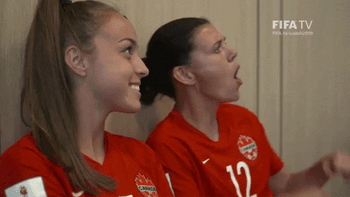FIFA threatens a Women's World Cup broadcast blackout

The GIST: FIFA could turn the lights off. Yesterday, president Gianni Infantino threatened a Women’s World Cup (WWC) broadcast blackout in five major European countries — the U.K., Germany, France, Spain, and Italy — due to lowball offers from media companies to air the tournament.
The details: Infantino said broadcasters pay around $100M to $200M to show the men’s World Cup and therefore should offer about 50% to 60% of that to air the WWC, based on the audience percentage it commands. Instead, FIFA received European bids of only $1M to $10M — 20x to 100x lower than the men’s fee, per Infantino’s calculations.
- British broadcasters BBC and ITV have reportedly offered $11.2M for July’s WWC, the highest offer FIFA received from the aforementioned countries. An Italian broadcaster, meanwhile, offered just $1M for the tourney. As if!
- If FIFA can’t strike broadcast deals in western Europe, it may air the WWC on FIFA+ or YouTube. Streaming women’s soccer matches for free on YouTube has worked for DAZN but would decrease WWC revenue and potentially viewership.
The risks: Despite an undeniable uptick in European demand for women’s soccer, broadcasters are wary about the time difference’s impact on audience numbers during this year’s tournament Down Under. They are also allegedly uncertain about how to value the tourney since FIFA has never sold unbundled WWC rights before.
The context: Former soccer exec and player Moya Dodd argues this is a mess of FIFA’s own making after consistently devaluing the women’s game. She suggests cooperation with media companies and that FIFA should calculate the true value of WWC TV rights and sponsorships after historically bundling commercial ops with the men.
- The process to assign accurate valuations is reportedly already underway. FIFA recently evaluated the tourney’s value for the first time ever, specifically appraising WWC broadcast rights at $300M. About damn time.
The lingering questions: Infantino is likely correct to argue that WWC broadcast rights should be higher, but does FIFA have enough leverage to pull off this extremely aggressive negotiating tactic? And how much course correction is required to end the industry’s historic habit of devaluing women’s soccer?
- FIFA and the broadcasters continue to insist it’s the other party’s problem to solve, but there’s a role for both to play in finally valuing the WWC accurately. Perhaps the biggest question of all is: Who will actually be the one to fix it?
Enjoying this article? Want more?

Sign up for The GIST and receive the latest women's sports business news straight to your inbox three times a week


